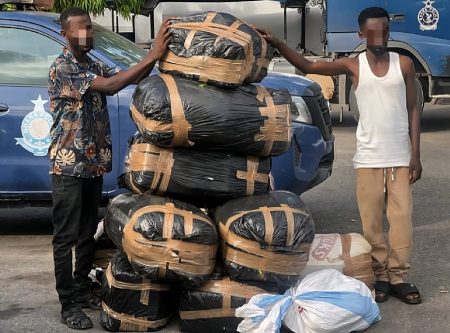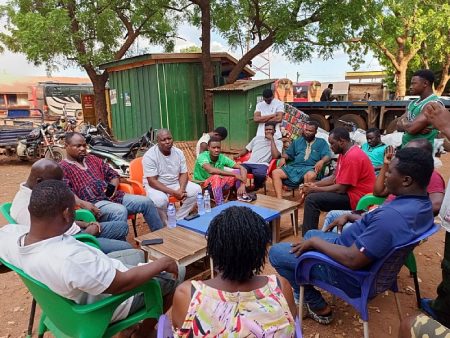Unraveling the Napogbakole Robbery Spree: A Case Study in Criminal Justice
The bustling streets of Wa Municipality, Ghana, once plagued by a series of brazen robberies, have found a semblance of peace with the sentencing of two notorious criminals. Abdulai Ibrahim, a 34-year-old driver’s mate known as "Baba," and Abdulai Kipo, a 36-year-old butcher, were handed down a combined 48-year prison sentence with hard labor by the Wa Circuit Court. The court, presided over by Jonathan Avoogo, found the duo guilty of conspiracy to commit robbery and robbery, marking a significant victory for law enforcement and a reassuring message to the community. The robberies, which targeted various locations within the Wa Municipality, including Napogbakole, Danko, SSNIT, and Konta, had instilled fear and disrupted the daily lives of residents. The swift apprehension and successful prosecution of Ibrahim and Kipo underscore the effectiveness of intelligence-led policing and the unwavering commitment of the Upper West Regional Police Command to maintaining peace and security.
The investigation into the robbery spree was spearheaded by the Regional Police Intelligence Directorate, whose meticulous evidence-gathering and targeted operations proved instrumental in bringing the perpetrators to justice. Through painstakingly piecing together witness testimonies, analyzing forensic evidence, and leveraging intelligence networks, the Directorate built a compelling case against Ibrahim and Kipo, connecting them to the string of robberies that had terrorized the community. This meticulous approach ensured that the prosecution presented a watertight case before the court, leaving little room for doubt about the guilt of the accused. The 28-year sentence handed down to Ibrahim and the 18-year sentence for Kipo reflect the gravity of their crimes and serve as a deterrent to potential offenders.
The successful conviction and sentencing of Ibrahim and Kipo signify a critical turning point in the fight against violent crime in the Upper West Region. It demonstrates the effectiveness of collaborative efforts within the police force, from intelligence gathering to investigative work and successful prosecution. This collaborative approach emphasizes the importance of information sharing, coordinated operations, and a unified commitment to upholding the law. Beyond the immediate impact of removing these two individuals from the streets, the successful resolution of this case sends a powerful message that criminal activities will not be tolerated and that those who engage in such acts will be held accountable.
The Upper West Regional Police Command’s unwavering dedication to safeguarding the community is evident in their proactive approach to tackling crime. Their commitment goes beyond reactive policing, focusing on crime prevention strategies and fostering a strong partnership with the community. By actively engaging with residents, building trust, and promoting information sharing, the police are creating an environment where criminal activities are less likely to flourish. This proactive stance includes community policing initiatives, public awareness campaigns, and targeted operations based on intelligence gathered from various sources. It is a testament to their belief that public safety is a shared responsibility, requiring the active participation of both law enforcement and the community they serve.
The sentencing of Ibrahim and Kipo serves as a stark reminder of the consequences of choosing a life of crime. While the allure of quick gains through illegal activities might seem tempting, the long-term repercussions are far-reaching and devastating. Not only do criminals face lengthy prison sentences, but they also bear the stigma of their actions, impacting their future prospects and relationships. The case of Ibrahim and Kipo underscores the importance of making responsible choices and pursuing legitimate avenues for personal and economic advancement. It emphasizes the need for educational programs, vocational training, and community support systems that provide individuals with alternatives to crime and empower them to contribute positively to society.
The Upper West Regional Police Command’s commitment to public safety extends beyond arrests and convictions. They recognize that true security comes from addressing the root causes of crime, fostering a sense of community, and empowering individuals to make positive choices. By investing in crime prevention programs, community outreach initiatives, and building strong relationships with residents, the police are creating a safer and more resilient society. This holistic approach recognizes that sustainable peace requires a collective effort, where law enforcement, community leaders, and residents work together to create a secure and thriving environment for all. The conviction of Ibrahim and Kipo stands as a symbol of this collaborative approach, marking a significant step towards a safer and more peaceful future for the Wa Municipality and the Upper West Region as a whole.














